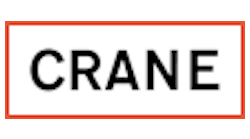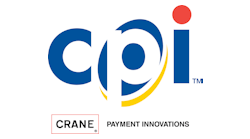Did you know Victor Francis Hess won the Nobel Prize in physics for discovering cosmic rays, Elvis Aron Presley celebrated his first birthday, Jesse Owens won Olympic Gold, and the vending industry as we know it today, was born, all in 1936?
While many things have changed in our industry since that time, the basic premise remains the same … vending delivers a high quality product to the consumer for a fair price.
The Oxford Dictionary defines vending, or more specifically a vending machine, as “a machine that dispenses small articles for sale when a token or a coin is inserted.” We have come a long way since that description was coined (pardon the pun). Today, we are seeing changes like never before.
Now, payments are made not only by coin but by paper money and credit/debit cards and the future is right around the corner with cell phones and RF soon to join the mix. As technology becomes more complex and sophisticated, the need for competent and reliable service becomes increasingly more important.
Stability amidst change
The basic vending segments remain the same: beverage and snack, full line, specialty, coffee service, bulk, music and gaming. The primary manufacturers of vending equipment are Crane, USI, Vendo, Dixie-Narco, Royal, and AMS.
There are others, but these six represent the majority of the business.
The primary suppliers of currency devices are MEI, Conlux, Pyramid Technologies, Coin Acceptors, ICT, Cashcode and JCM. Typical problems with currency devices are coin jams, salting of equipment, bill jams, outdated software revisions, broken parts, corrosion, and miscellaneous shorted electronic parts.
Benefits of authorized servicers
A simple and effective way for an operator to increase his or her bottom line is to be sure to use a factory authorized service center for currency device repair work. Authorized centers have the recommended tools, are able to calibrate test and tune the equipment and have access to the latest software revisions to ensure performance.
An authorized service center also has all the latest service bulletins and schematics and is able to purchase OEM parts. Authorized repair centers employ certified technicians to do the work, meaning the repairs are done right the first time, all the time.
Out-of-service equipment costs a vending operator product sales and potential repeat customers. Thus, an operator should always be looking for ways to improve the product delivery systems.
By not using a factory authorized center, an operator runs the risk of not having the work done properly.
Some repair centers try to cut corners to keep their costs down and minimize their customers' invoices. What this actually does is increase costs for the vending company.
There are certain things to look for to ensure the company is getting the type of service and support needed to run a profitable business.
Points to consider
Here are some ways for you to determine if a service partner is doing the best possible job:
- Request itemized invoices from the company doing repairs. An operator needs to know what he is paying for and the parts being used.
- Take a close look at the repairs being returned. Watch for repairs that show melt points from a heating iron on the motor case. It means that the repair company has probably used a worn gear and glued the motor back together instead of replacing it.
- Pay attention to the belts being used. Look closely at the sides' top and the texture of the belts. Experienced techs can tell if the belts are OEM or aftermarket. Aftermarket belts will not always provide the service and performance needed to keep equipment in operation.
- Look for companies that always replace drive belts, drive rollers and stacker belts with new OEM products. Failure to do this is virtually guaranteeing failure in the near future.
- Make sure oscillators' coils in the lid assemblies are being replaced if they are broken. Do not let a repair company simply glue the broken part together. It will not stand up in service.
- Ask the repair center what their standard procedure is when repairing control/display boards. Do they replace the software battery and battery holder? Is the software automatically updated to the latest revision?
- A 2-week turnaround is something an operator should expect from an authorized service center. The company needs its equipment back in service within a short time frame.
- Increased REV's (repair exceeds value) can mean that the repair company does not want to repair the product for the flat rate price. If you see a number of units being returned or your REVs increase after a new flat rate contract takes effect, take a closer look.
- Search for a company that does all repairs in-house. The customer will only have to deal with one supplier and not two or three.
- Find a partner that has adopted technology; the information that can be derived is essential in helping you make better business decisions. Following a coin mech's history can determine whether or not something needs to be replaced, if the repair exceeds value or that a particular technician needs some additional training.
- Repeat service calls due to outdated software revisions, trying to extend the life of old parts or using cheaper aftermarket parts causes increased expense for the vending company.
A vending company requires an authorized, competent partner to keep its business running at top efficiency.
Remember, there is truth to the old adage, “you get what you pay for.” Look at the big picture, not the short term. Can you really afford to do business with an unauthorized company?
When you look at the actual price you are paying, the answer 99 percent of the time is a resounding “no!” Follow these guidelines and you will definitely see an increase in your performance and profits.
Mark Stolley is the founder and president of Changer Services in Minneapolis/St. Paul Minn., a part of RPS Holdings. He can be reached at [email protected] or 651-405-0959.






